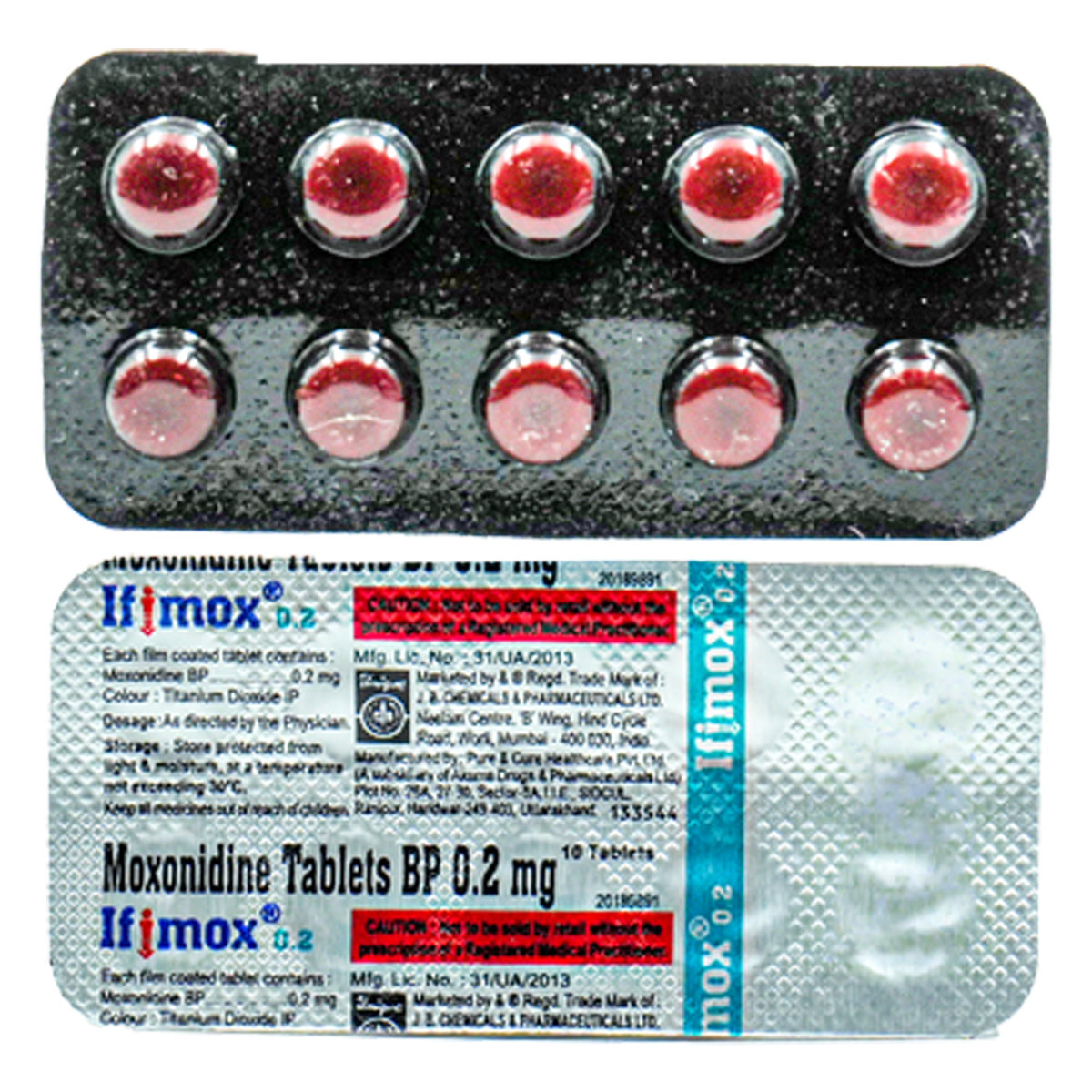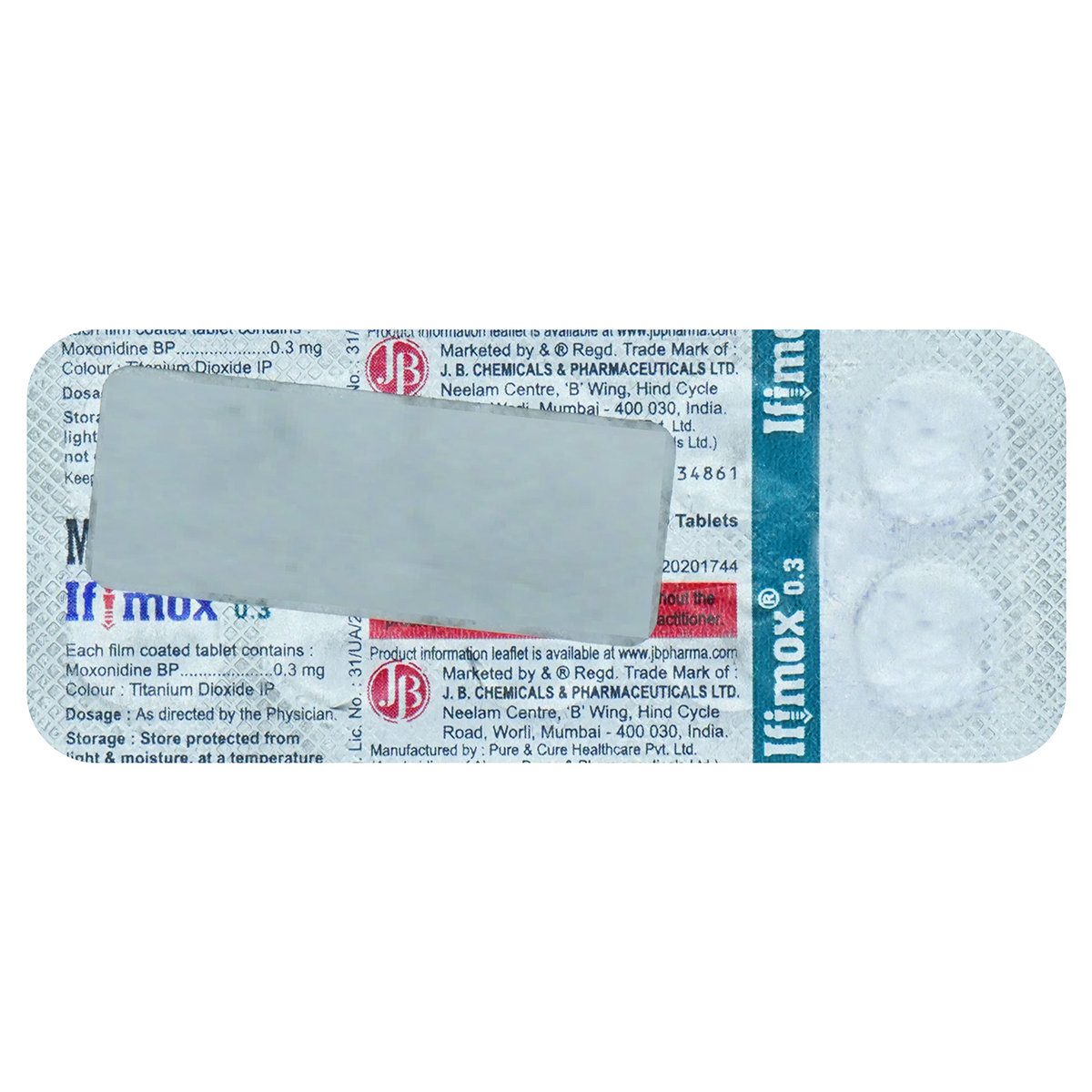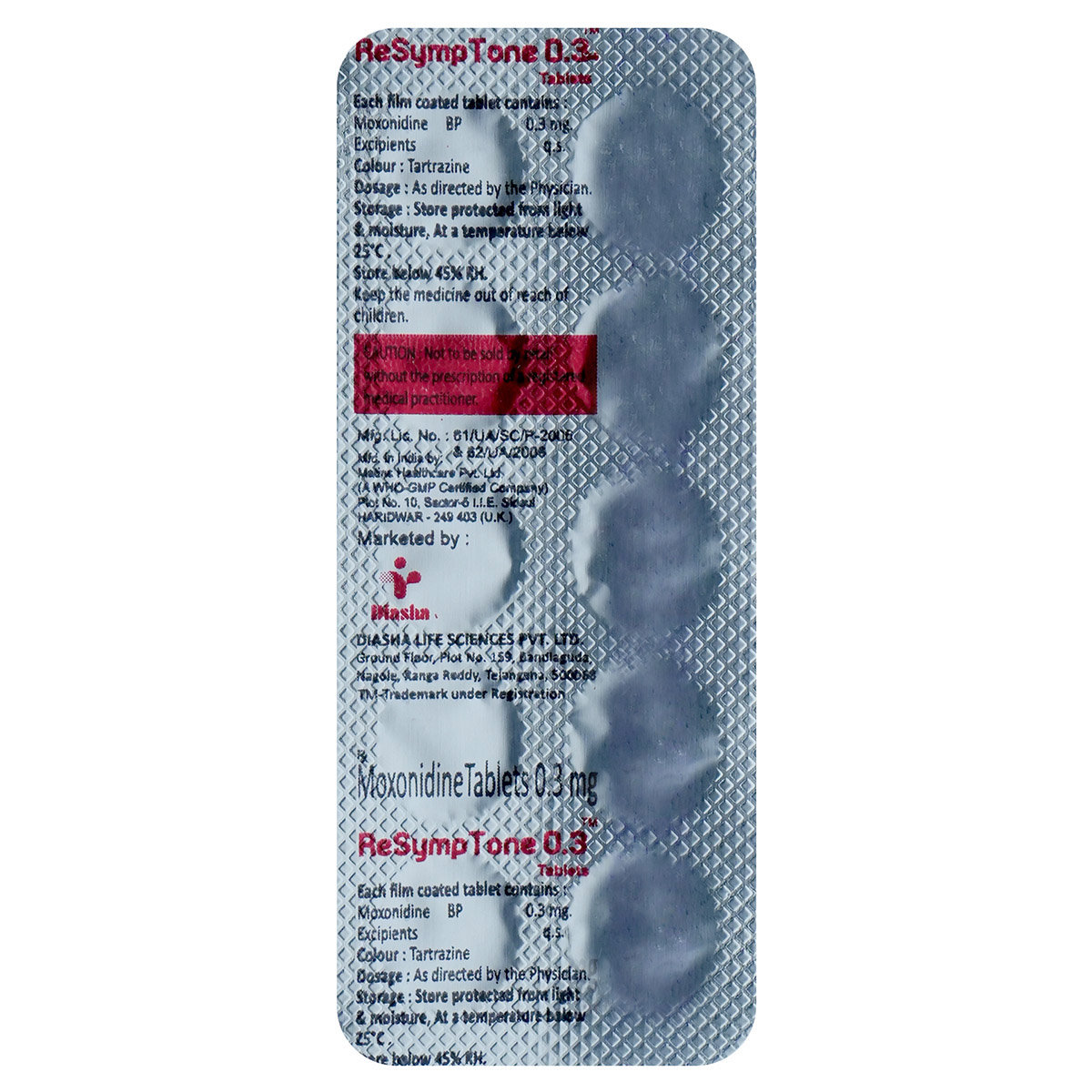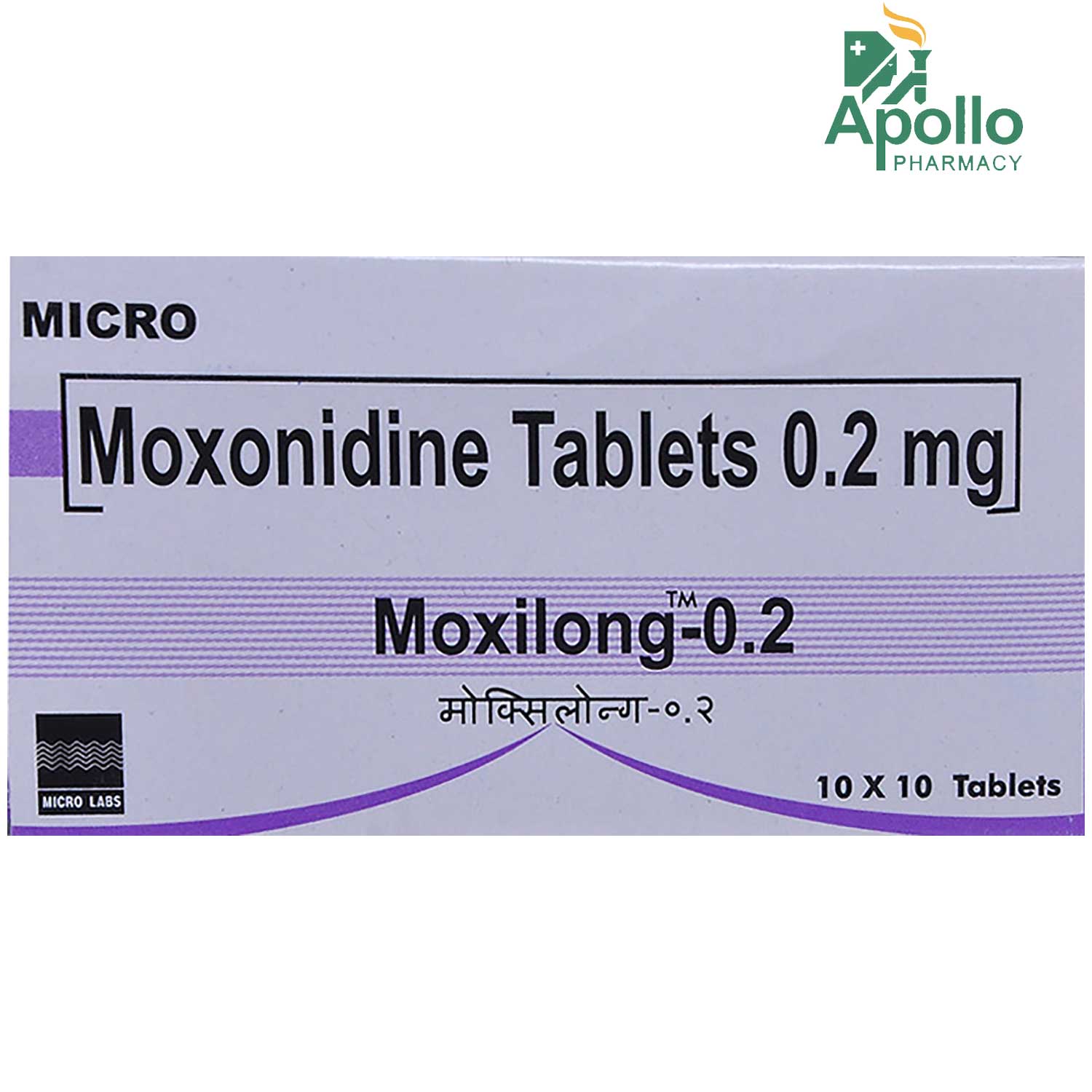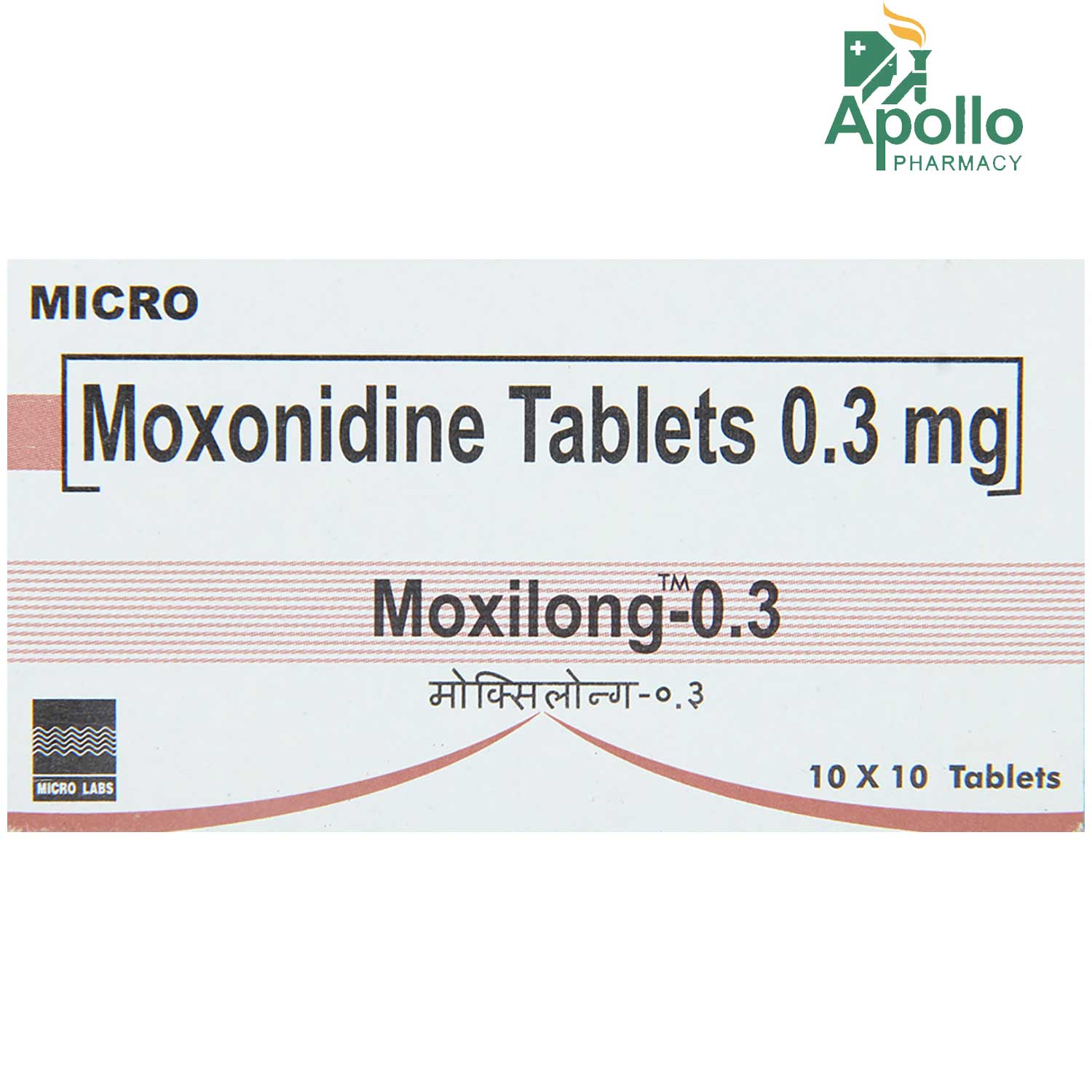Moxonidine
About Moxonidine
Moxonidine is used in the management of high blood pressure. Hypertension (high blood pressure) is a lifelong or chronic condition in which the force exerted by the blood against the artery walls becomes high.
Moxonidine contains Moxonidine, which relaxes and widens the blood vessels, making it easier for the heart to pump blood to all body parts.
Some people may experience dry mouth, dizziness, weakness, rash or itching, difficulty in sleeping, nausea, vomiting, and indigestion. Most of these side effects do not require medical attention and will resolve gradually over time. However, speak to your doctor if these side effects persist.
Please tell your doctor if you are allergic to Moxonidine or any other medicines. If you are pregnant or breastfeeding, it is advised to inform your doctor before using Moxonidine. Regular monitoring of blood pressure, electrolyte levels, and kidney functioning is advised while taking Moxonidine. Moxonidine should not be given to children unless prescribed by the doctor.
Uses of Moxonidine
Medicinal Benefits
- Moxonidine belongs to the group of medicines called 'antihypertensive' used in the treatment of hypertension (high blood pressure).
- Moxonidine relaxes and widens the blood vessels, making it easier for the heart to pump blood to all parts of the body.
- This helps in decreasing the blood pressure and the risk of having a heart attack or stroke and kidney problems in the future.
- Moxonidine needs to be taken regularly to be effective.
Directions for Use
- Moxonidine can be taken with or without food as advised by your doctor.
- Follow your doctor's instructions on the dosage and timing of this medication.
- Swallow Moxonidine as a whole with a glass of water.
- Do not crush, break, or chew it.
Storage
Side Effects of Moxonidine
- Dry mouth
- Dizziness
- Weakness (asthenia)
- Rash or itching
- Insomnia (difficulty in sleeping)
- Nausea
- Vomiting
- Indigestion
Drug Warnings
- Do not take Moxonidine if you are allergic to any of its ingredients.
- Inform your doctor if you have heart, liver, or kidney problems.
- Do not take Moxonidine with medicines that affect the heart rate like epinephrine, diltiazem, verapamil, and digoxin as it may cause arrhythmia (irregular heartbeat).
- Avoid taking Moxonidine if you are pregnant or breastfeeding.
- Moxonidine is not recommended in children below 18 years of age, as the safety and effectiveness were not established.
- Do not consume alcohol while taking Moxonidine as it might cause unpleasant side effects.
- Inform your doctor about all the medicines you are taking and your health condition to rule out any unpleasant side effects.
- Regular monitoring of blood pressure, electrolyte levels, and kidney functioning is advised while taking Moxonidine.
Drug Interactions
Drug-Drug Interactions: Moxonidine may interact with other antihypertensives (atenolol, metoprolol, propranolol), pain relievers (acetaminophen, tramadol), medicines used to treat bipolar disorder (aripiprazole and quetiapine), anti-anxiety (alprazolam, lorazepam, duloxetine), and anti-epileptic (clonazepam, diazepam, pregabalin).
Drug-Food Interactions: Maintain low salt and low-fat diet while taking Moxonidine. Avoid alcohol consumption while taking Moxonidine as it might lower the blood pressure than normal.
Drug-Disease Interactions: Moxonidine may have interaction with depression, kidney dysfunction, heart problems such as bradyarrhythmia, and low blood pressure.
Drug-Drug Interactions Checker List:
Safety Advice

Alcohol
unsafeYou are recommended to avoid alcohol consumption while taking Moxonidine to avoid unpleasant side-effects.

Pregnancy
consult your doctorIt is not known if it is safe to take Moxonidine while you are pregnant. Please consult your doctor if you have any concerns regarding this; your doctor will prescribe you Moxonidine only if the benefits outweigh the risks.

Breast Feeding
consult your doctorIt is not recommended to take Moxonidine while you are breastfeeding. Please consult your doctor if you have any concerns regarding this; your doctor will decide whether Moxonidine can be given to breast-feeding mothers or not.

Driving
unsafeMoxonidine may impair your thinking and reactions, and you should not drive or operate machinery unless you are alert.

Liver
consult your doctorPlease consult your doctor if you have a liver impairment or any concerns regarding this.

Kidney
consult your doctorPlease consult your doctor if you have a kidney impairment or any concerns regarding this.

Children
unsafeMoxonidine is not recommended for children below 18 years of age, as the safety and effectiveness were not established.
Habit Forming
Diet & Lifestyle Advise
- Include more whole grains, foods, vegetables, fruits, and low-fat dairy products in your diet.
- Cut back the foods high in saturated fat, sugar, and cholesterol.
- Follow your doctor's instructions as they will suggest you include regular exercise and a low sodium diet intake in your daily life.
- Increase the intake of potassium-rich foods, including prunes, raisins, and orange juice in your diet, as it will help the body recover quickly.
- Limit consumption of excess sodium and sugary drinks. For cutting back on sodium, start by reducing the sodium intake to 1500mg (about 2/3) teaspoon) and then gradually reduce it more.
- Instead of munching chips or sweets, eat unsalted nuts and frozen yoghurt that is good for your health and keep the weight under control.
- Check your weight at regular intervals to keep your eyes on weight fluctuation. Try to control your weight according to your BMI, so include exercising and healthy eating habits in your lifestyle.
- Make a habit of regular exercising for at least 1-2 hours a day, or at least one should walk for about half an hour for good health. Doing this will lower the sugar level and maintain a normal heart rate.
- Stress can worsen hypertension, so one should enjoy time with friends and include mindful activities in their daily routine.
- Please keep a blood pressure record as it will help a person notice the fluctuations in their blood pressure.
Patients Concern
Disease/Condition Glossary
Hypertension: Blood pressure is the measurement of the force that our heart uses to pump blood to all parts of the body. Hypertension is a chronic condition in which blood pressure is too high. When the heart pumps more blood, the arteries become narrower, and in turn, blood pressure becomes high. However, if blood pressure becomes uncontrolled, then it may cause serious heart diseases like brain damage (stroke), heart attacks, and kidney failure. Blood pressure is indicated by systolic and diastolic. Systolic pressure represents the contraction and relaxation of the heart (the heart pumps out the blood). On the other hand, diastolic is the pressure in the vessel when the heart beats in a resting state. The normal blood pressure range is 120/80mmHg. Hypertension is detected when systolic blood pressure is more than 140mmHg, and diastolic pressure is higher than 90mmHg.
FAQs
Moxonidine is used to treat hypertension (high blood pressure).
Moxonidine belongs to the group of medicines called antihypertensives that relax and widen the blood vessels, making it easier for the heart to pump blood to all parts of the body. This helps in decreasing the blood pressure and the risk of having a heart attack or stroke.
Please do not stop taking Moxonidine without consulting your doctor on your own, as it may lead to a rise in blood pressure. Continue taking Moxonidine for as long as your doctor has prescribed it to you. Do not be reluctant to speak with your doctor if you experience any difficulty while taking Moxonidine.
Even if a person achieved their goal of bringing their blood pressure back to normal, they should not stop taking their medication without consulting a doctor. Only after the doctor's recommendation, the dosage of Moxonidine could be adjusted.
As hypertension is a serious medical issue, taking Moxonidine helps to reduce the risk of heart disease and other serious conditions. So, one should not stop taking medicine without consulting with their doctor. However, depending upon the condition, the doctor will adjust the dosing.
Dry mouth, dizziness, weakness (asthenia), rash or itching, insomnia (difficulty in sleeping), nausea, vomiting, and indigestion are some of the common side effects of Moxonidine.
Take Moxonidine as advised by your doctor. In case of a single lowest dose, you can take it in the morning. However, if divided doses are to be taken, one dose can be taken in the morning and the other in the evening.
You should take Moxonidine exactly as prescribed by your doctor. Take it as a whole with a glass of water. Do not break, crush or chew it. It can be taken during, before, or after meals, as food does not affect the working of Moxonidine.
People who are allergic to Moxonidine or have heart function insufficiency, slow heart rate (below 50 beats/minute at rest) or change in the rate of the heartbeat (called sick-sinus syndrome or second or third degree AV-block) or an abnormal heart rhythm should avoid taking Moxonidine.
Symptoms of Moxonidine overdose include a fall in blood pressure, feeling sleepy, headache, feeling dizzy, slow heart rate and unusual weakness. The other symptoms can be being sick, dry mouth, feeling tired, and stomach pain. In case of overdose, contact your doctor or go to the nearest hospital emergency department immediately.
You can take atenolol with Moxonidine. However, consult your doctor before taking other medicines with Moxonidine. Additionally, stop taking atenolol for a few days before you stop Moxonidine, as stopping both treatments at the same time could result in an increased blood pressure.
Sleep disturbance is a common side effect of Moxonidine. This is usually mild and settles down soon. Contact your doctor if this side effect persists or worries you.
Moxonidine belongs to the class of medicines called antihypertensives. It is used to lower blood pressure of hypertensive (high blood pressure) patients.
Moxonidine is not recommended for children as the safety and effectiveness were not established.


